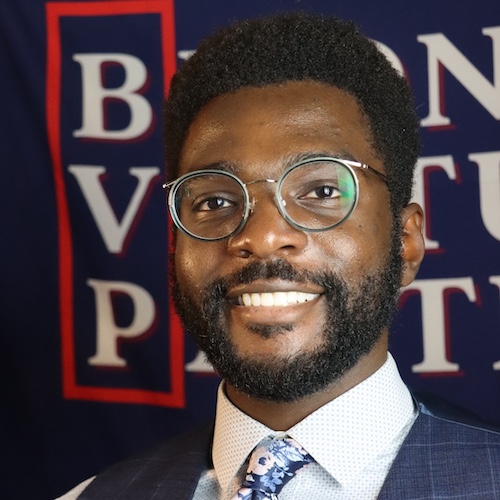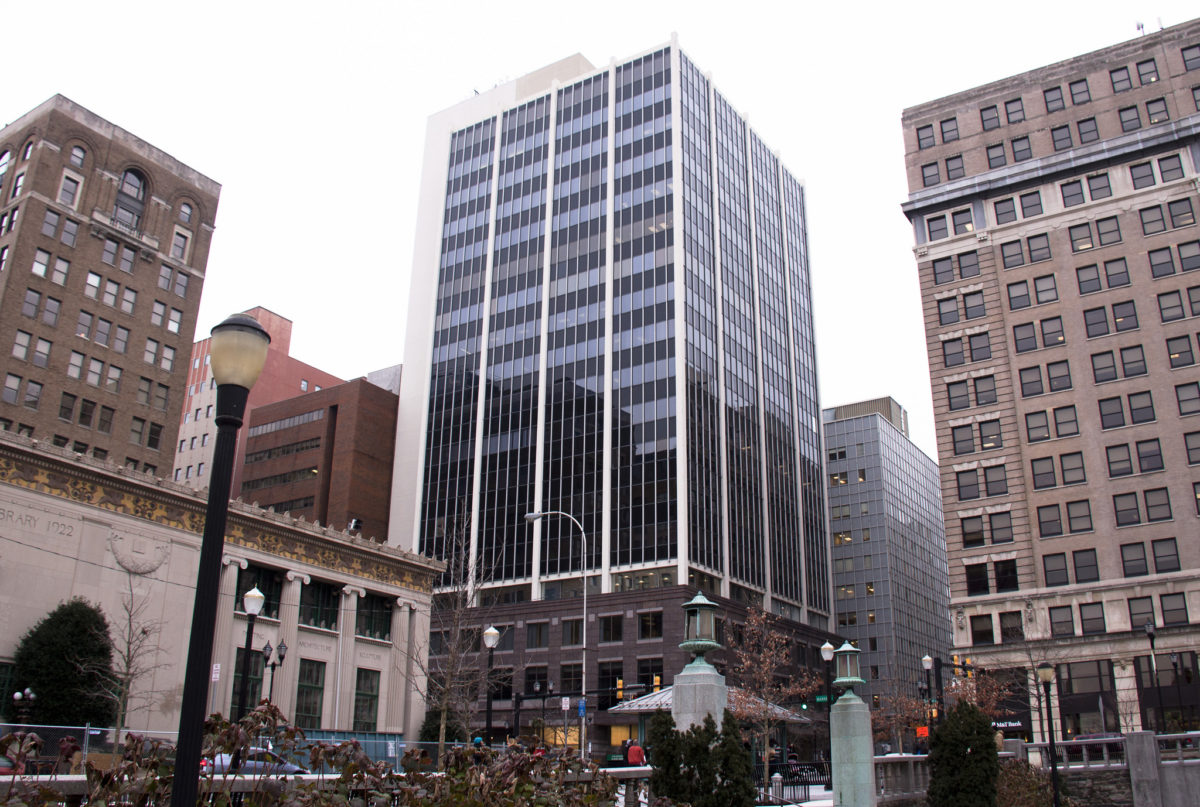
This guest post is a part of Racial Equity Month of Technical.ly's editorial calendar.
Dear Delaware business community: You’re officially on notice.
We’re flipping the script, and refusing to play a supporting role in your diversity theater. Please don’t be fooled, this isn’t just another op-ed on having difficult conversations about race in the workplace. This is an ultimatum.
This is about creating lasting change for generations to come. It’s about holding everyone responsible, and no individual, organization or corporation will be spared from full accountability. If you’re not an active contributor in the building a more equitable entrepreneurship ecosystem, you do not deserve to benefit from our contributions to it.
Your company may have posted a statement on the Black Lives Matter movement. You might have even recognized Juneteenth for the very first time. Congratulations, but that’s still not enough.
###
As an ecosystem boasting the ease of doing business and close proximity to major cities within the mid-Atlantic region, we often complain about our talent (particularly young talent) migrating out of state for greener pastures. I firmly believe the Delaware business community needs to take a step back and ask itself a few urgent questions:
- Does Delaware truly have a unique and compelling value proposition for entrepreneurs of all types and stages?
- Does Delaware truly provide the access to education, networks and funding necessary for all entrepreneurs to thrive?
The answer is no.
Delaware must take full responsibility for its shortcomings. The business community needs to stop complaining, because these departing entrepreneurs’ decisions are justified. Business owners have a choice of where they decide to set up shop, and they do not owe it to Delaware to wait around for a time when the ecosystem decides to pull together new resources and opportunities to support them.
To put things into perspective, imagine being an aspiring fintech founder and reading all about Delaware’s recent positioning as a leader in financial technology and innovation. You research local fintech companies, only to discover their founding teams and employees look nothing like you. You see the stark contrast between the faces featured on the “Team” pages on their websites and the communities they operate in. Why is that? In your generation, it’s the closest thing you’ve ever seen to the “Whites Only” signs prevalent during segregation.
As a Black entrepreneur, this upsets me while simultaneously reinforcing my mission and purpose. Unfortunately, this is a recurring theme in my assessment of business ecosystems in Delaware and beyond:
- Founding teams don’t represent my community.
- Executive teams don’t represent my community.
- Investment teams don’t represent my community.
- Employees and staff don’t represent my community.
I’ve never once thought “Oh, this company doesn’t have Black people on their team. Therefore, they must be racist.” I do, however, discern that the company or organization is actively contributing to an inequitable society, whether intentionally or unintentionally.
Lucky for us, the First State is fortunate in that it has an opportunity to build its nascent business and innovation ecosystem the right way, from the ground up. Time will tell if we rise to the occasion.
###
As founders and innovators, we’re told time and time again that entrepreneurship is about solving big problems. For some not-so-strange reason, racism and discrimination have never been appropriate problems to be solved.
As a Black startup and nonprofit founder, I’ve been told in pitch sessions that my mission to empower Black and Brown entrepreneurs is “reverse discrimination.” This has led to the watering down of my mission statement to make it palatable for those apathetic to having hard conversations about race and inequality in America.
Yes, Black and brown entrepreneurs lack many of the privileges provided to white entrepreneurs, but do not refer to us as “underprivileged.” Just because we’re seeking economic parity should not make us a charity case.
Let’s retire the “underserved minority” trope ASAP, along with the tired “they weren’t ready” excuse for a pass on investment, especially if you’ve never done anything to help us GET ready.
We know that the barriers in our way today are the remains of those same walls chipped away by our grandparents and ancestors before us.
- Knowing our communities are underrepresented in the rooms where the important decisions affecting our futures are being made …
- Knowing our startups, small businesses and nonprofits are underfunded at every stage …
- Knowing others judge us not on our credentials, work ethic and business performance, but on our physical appearance and identity …
- Knowing that no matter how much data and evidence we bring to the table, it’s still not enough …
- Knowing that so many others who don’t look like us have been given so much more, while having to do so much less …
This burden of consciousness weighs over us at every staff meeting, coworking space, happy hour, networking event and awards banquet. You may be totally oblivious, while we remain hyper-vigilant.
Still we rise.
###
Personally, I’ve been privileged to benefit from our ecosystem in many ways; I’ve been a DBT 40 Under 40 honoree, StartUpAfrica Youth Entrepreneur of the Year, and even attained a master of science in entrepreneurship and design degree from the University of Delaware. Accolades aside, I continue to navigate the world as a Black man. I’m still watched and followed in the same stores carrying newspapers featuring the good work I’m doing in the community. I enter every business meeting, pitch competition and speaking opportunity conscious of who I am. “How do others in this room view me?” is a question that has a permanent seat in the back of my mind.
In college, I remember attending a panel discussion for graduate students pursuing work at Wilmington-based companies. Unsurprisingly, this was an all-white panel, so I decided to ask these representatives how their company defined diversity and contributes to creating an inclusive workplace. By the looks on their faces, you would’ve thought I accused each of them of being members of a hate group. After an uncomfortable pause, with neither panelist in any rush to take this one, one responded with feigned excitement:
“We’re super diverse! I mean, look at this guy” — he gestured to a co-panelist — “he’s from Ireland. Ireland!”
It was in that very moment that I eliminated any aspiration to enter the workforce.
In my search for purpose fulfillment, I decided to devote myself to fighting for opportunities, access and funding for entrepreneurs who look like me. I began collecting the stories of business owners and innovators in the community struggling to survive and succeed, and subsequently advocated on their behalf to local resource providers. Little did I realize that the barriers in their way would block my path as well.
Very few have ever asked about my struggle, or my story. Still I rise, steadfast and immovable.
###
Justifiably, there’s an urgent focus on increasing police accountability and accelerating policy reform. We’re also aimed at deconstructing and rebuilding each and every system that’s ever contributed to the oppression, discrimination and unfair practices holding many people back from attaining true freedom and prosperity.
Some might think this is simply a moment in time that will soon be forgotten, but they fail to realize that Black Americans live with this painful reality every single day. We did not forget Rodney King, Tamir Rice or Sandra Bland. We will never forget Breonna Taylor, Rayshard Brooks or George Floyd.
For any allies, or better, accomplices in our socioeconomic revolution, you must acknowledge that making a #BlackLivesMatter statement is not nearly enough. Fleeting words without concrete actions are unwanted and meaningless. So:
Employers, hire a more diverse workforce.
Ask yourself: Does our workforce represent the diversity of the community we live and work in? Are each of our employees included in an environment with all the resources needed to thrive?
Investors, diversify your portfolios.
Ask yourself: Do we give founders of all backgrounds and identities the same opportunity to receive funding? Does the portfolio page on our website accurately represent our commitment to diversity and inclusion?
Grant providers, same to you.
Ask yourself: Do our grants make it to nonprofits led by leaders of color? Are we truly funding the organizations on the ground, doing the hard work to uplift their communities?
Everyone, we need action.
Ask yourself: How might I have contributed to the problem? How can I actively contribute to the solution?
No one is asking for a handout, and this isn’t about charity. Diversity leads to increased business performance, and inclusive solutions are required to build equitable ecosystems. This means the input from diverse communities is necessary everywhere from ideation to design to execution.
Therefore, we are demanding the following:
- Diversity in your leadership
- Diversity in your board of directors
- Diversity in your employees and staff
- Diversity in your investments and grant recipients
- Diversity in your professors, instructors and student body
Make no mistake, diversity and inclusion is not enough. Equity is required as well. People want jobs, but to reach economic parity, we require opportunities to build wealth for our families and generations to come. We need commitments to systemic change.
We are all watching, and we will hold you all accountable.
A final note:
Refer to us as founders of color, if you must, but we are not “diverse founders.” I am not a diverse founder. One person is not diverse. Populations are diverse. Groups are diverse. The “diverse founder” misnomer is inaccurate and problematic, unless you’re referring to an individual’s range of experience, opinions, interests and/or skill-set.
Join the conversation!
Find news, events, jobs and people who share your interests on Technical.ly's open community Slack

Delaware daily roundup: Delmarva Power vendor stats; DelDOT's $15M federal grant; 50 best companies to work for

Delaware daily roundup: Over 4,000 Black-owned businesses uncovered; Dover makes rising cities list; a push for online sports betting

Delaware daily roundup: Ladybug Fest illuminates small biz; Hahnemann Hospital's biotech future; intl. politics and a Middletown project


